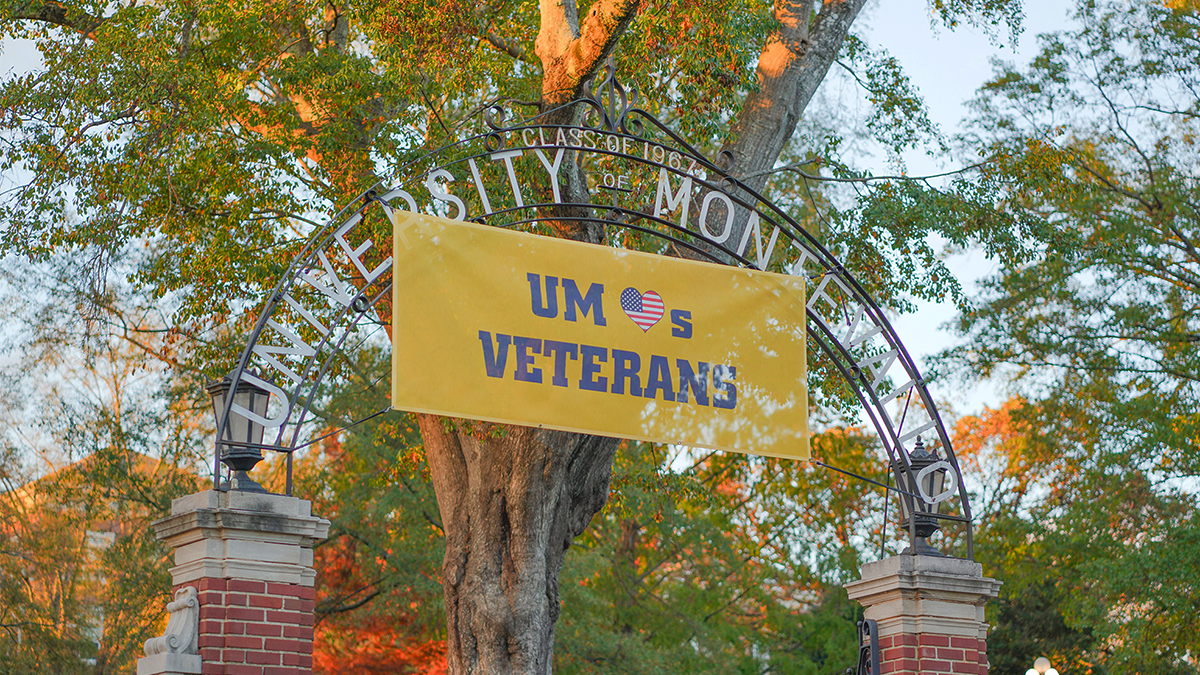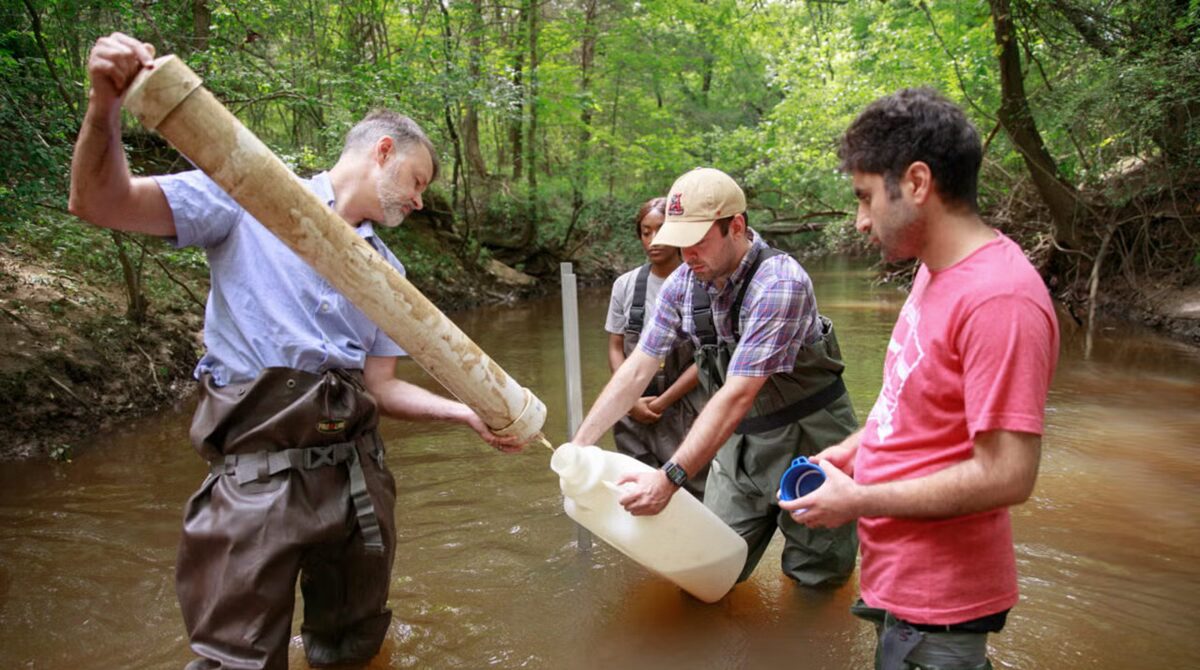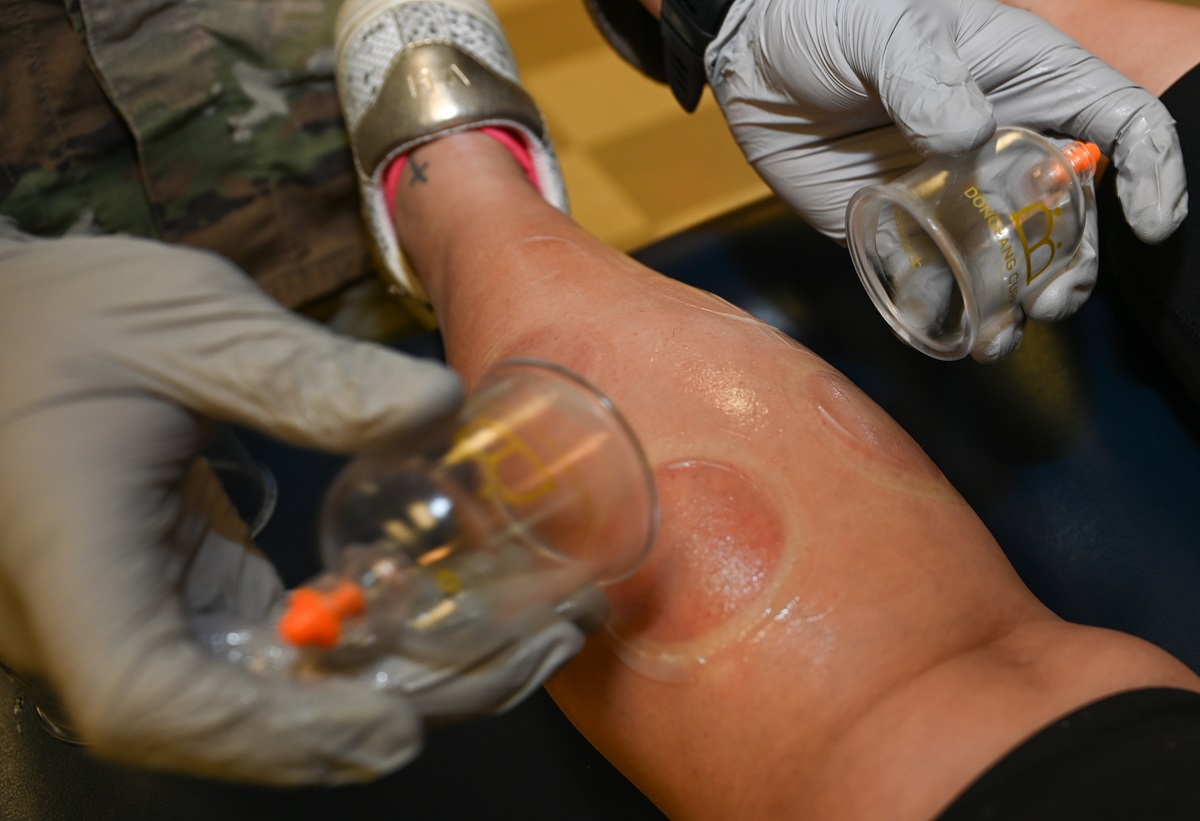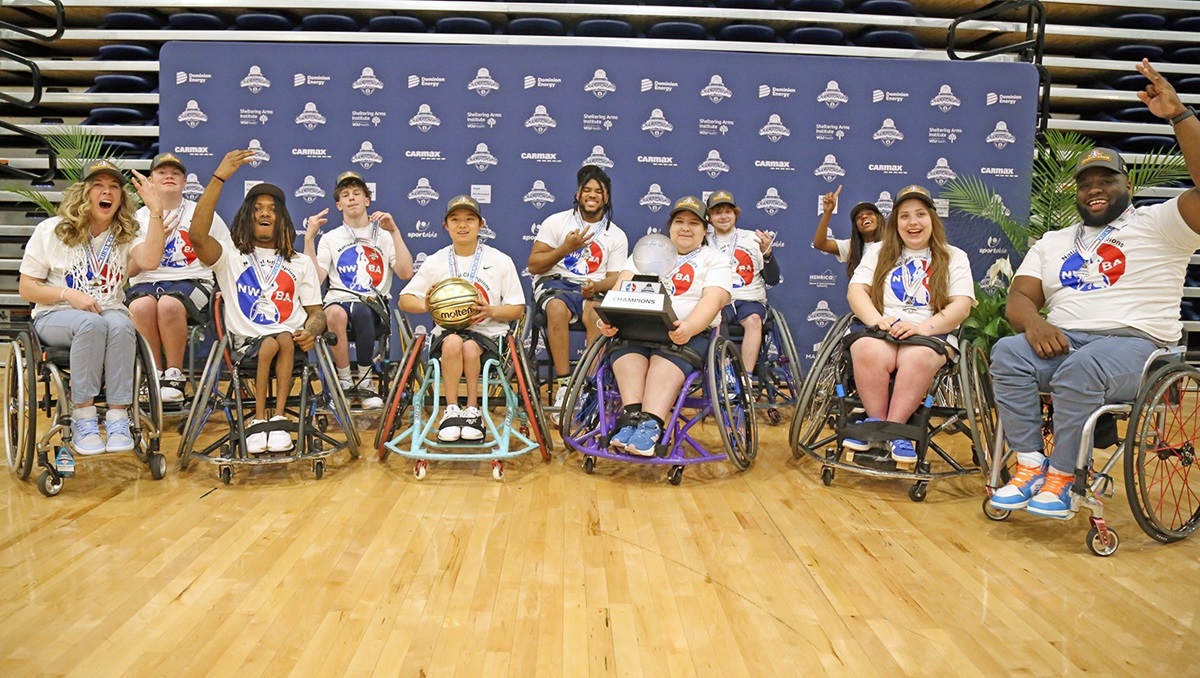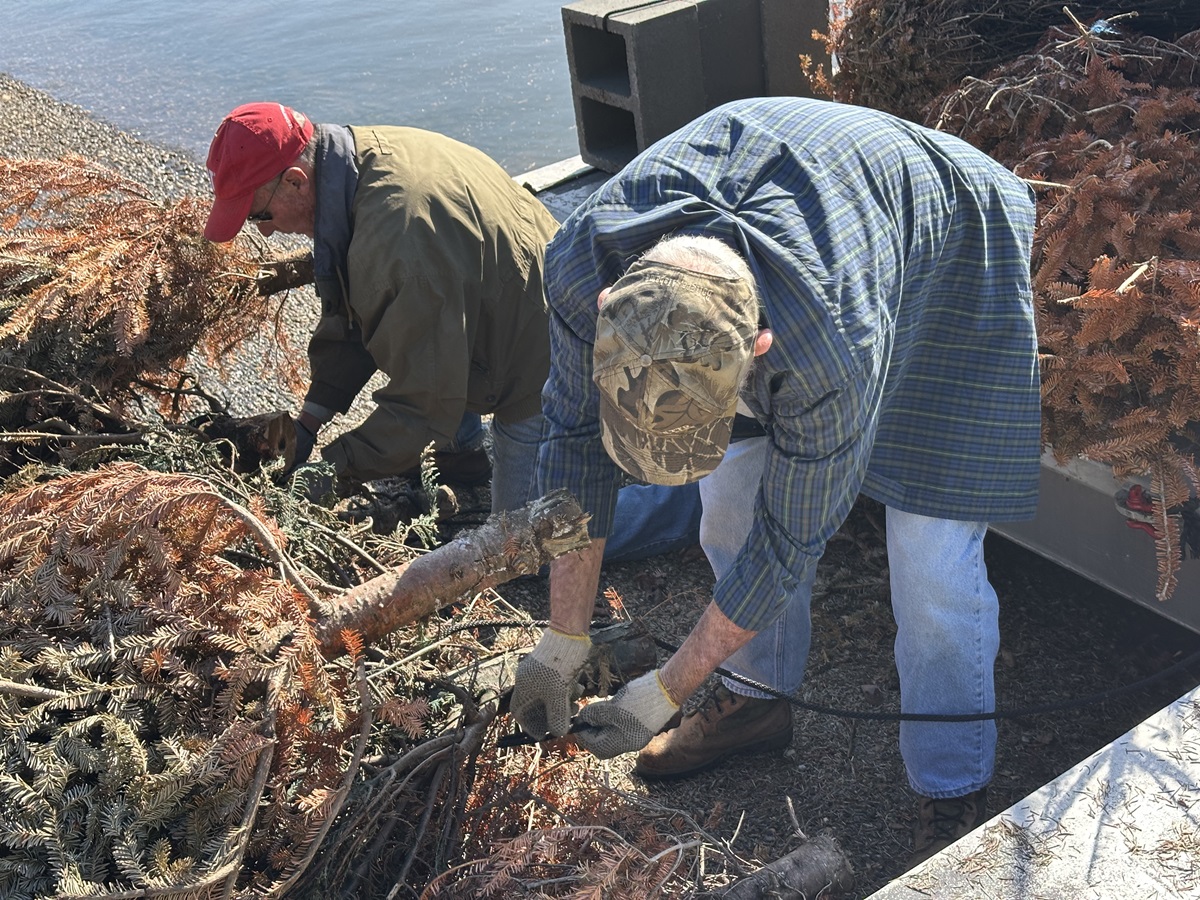Alabama preschoolers’ parents get help to grow their little learners
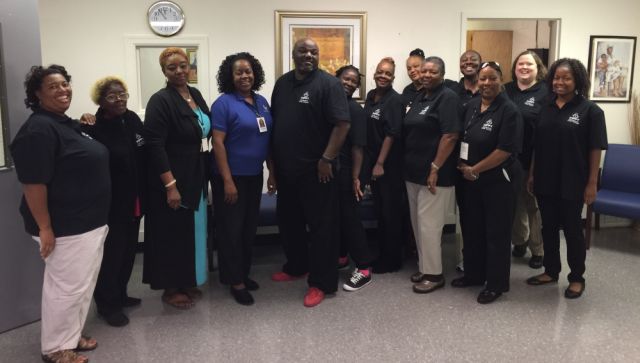
Members of the Montgomery chapter of HIPPY, Home Instruction for Parents of Preschool Youngsters.
Parenthood – as new mothers and fathers quickly realize – does not come with an instruction manual.
But there is help, and it’s called HIPPY.
HIPPY stands for “Home Instruction for Parents of Preschool Youngsters.” It is a home-based program that uses role playing to help income-qualified parents educate and enrich their preschool children.
It may not be a household name. But the households that have participated testify to its value.
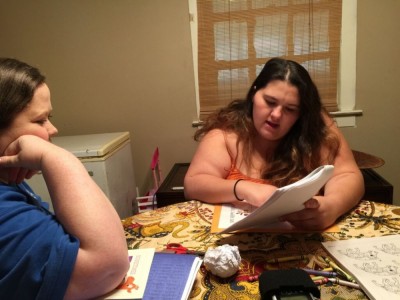
Parent asks questions of the HIPPY home visitor.
“I would tell anybody, HIPPY does work,” said Sharon Taylor of the group’s Montgomery chapter.
Taylor first contacted HIPPY nearly two decades ago. Her young son Terrelle was suffering from multiple disorders, including Attention-Deficit Disorder, Attention-Deficit/Hyperactivity Disorder and bipolar schizophrenia.
A HIPPY home visitor named Amanda came to her house to teach parenting skills.
“At first I was like, ‘no, I really don’t have time,’” said Taylor. “But as time went on, Terrelle and I started doing the lessons. They taught me how to bond with Terrelle, taught him how to identify things and do what he needed to do.”
Terrelle would go on to graduate high school, the first male in the family in decades to do so. Taylor would go on to work with HIPPY as a parent-educator for nearly two decades.
“HIPPY gave me the tools I needed to work with my son,” said Taylor. “I was able to take what I learned and pass it on to other parents.”
Alabama and beyond
Today there are 139 HIPPY chapters in 23 states and the District of Columbia. Alabama has 26, ranking second behind Arkansas, where the program started.
“Alabama continues to grow and to give us some our best families in HIPPY,” said Tina Watson, national program assistant director. “In the South you find more of that family-community connection.”
That was evident on a recent home visit in Montgomery. Parent-educator Rebecca Gage sat down with Tabitha Ellis to go over lessons she would then pass along to her four-year-old daughter.
Reading aloud from “Sometimes Big Sometimes Small,” a book about a boy who feels “grown-up” one moment and unsure of himself the next, they stepped into the character’s shoes by comparing themselves to various-sized objects. Next up was a math lesson, focused on number recognition. After that Gage demonstrated a magnet’s power to attract common household objects.
The age-appropriate, evidence-based curriculum is designed to educate the child and – equally important – to boost parental self-confidence.
“It has been rewarding,” said Gage. “We see parents who didn’t think they could teach their kids something. But they learn from them more than they thought.”
The learning is supported with a wealth of free reading material.
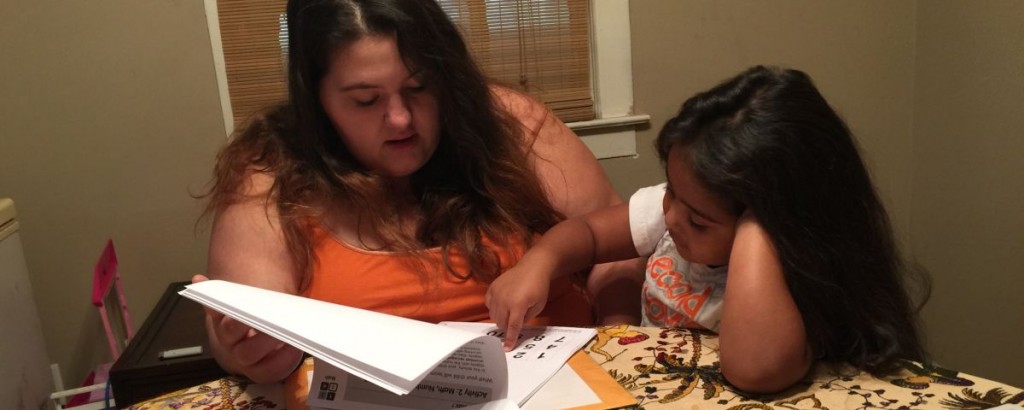
Mother and daughter go over lessons.
“If the child comes in at age three, each year they get nine books,” said Laura Collins, coordinator of the Montgomery County chapter, which handles more than 170 kids. “By age four, they have 18 books. So it starts a library for them. We also give out books at holiday times.”
“She’ll go, ‘Mama, read me this book 100 times!’” Ellis said of her daughter, Ariana. “She loves the books, she loves it all.”
Collins leads regular “train-the-trainer” sessions in Montgomery. At one, more than a dozen parent-educators sat around a table, role-playing lesson plans and activities. They took turns reading from the book “Jump, Frog, Jump!” and even acted out the scenes.
It’s all meant to reassure parents that home education is not something to feel intimidated by; rather, it can be a fun and creative way to prepare children for school.
“That’s what HIPPY does. It gets them started,” said parent-educator Belle Smith. “Any child that’s not up to where he should be could be left behind.”
Recently, the White House included HIPPY in the launch of its Hispanic education online catalogue. About a third of the 15,000 HIPPY families nationwide utilize Spanish materials.
It’s one more way HIPPY has families speaking the same language.
“I knew how to be a parent a little bit,” said Taylor. “But I truly did not know how to bond until I got with HIPPY.”
